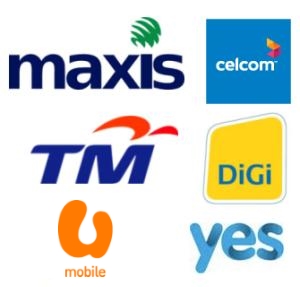telecommunications and information technology sectors

Last couple of years have been a bit tough for the telecommunications and information technology sectors, not in terms of growth but due to dip in its credibility in view of scams. However, multinational firms as well as Indian companies have continued to repose faith in these two high-growth sectors.
Telecom sector, particularly mobile telephony, has done exceptionally well in the last decade as teledensity has now crossed 66 per cent from under 4 per cent in March 2001, with over 75 crore mobile connections. However, broadband connections that currently stand at over 1-crore have been a bit of a dampener. But now government is focusing on wireless broadband that would further boost economic growth.
With huge investments made in the auction of 3G and Broadband Wireless Access (BWA) spectrum, operators are looking at some incentives from Finance Minister Pranab Mukherjee in his Budget proposals for 2011-12.
As the telecom sector is expected to constitute 15 per cent of India's GDP in few years, it needs focus attention and support of government through various financial measures. “The government should restore tax holiday to meet ever-growing need of building and improvising the telecommunication network, while minimum alternate tax (MAT) rate should be rationalised. We need more clarity on withholding tax issues to ensure unhindered growth of the sector,” said Hemant Joshi of consultancy firm Deloitte Haskins & Sells.
The telecom sector has also demanded special service tax exemptions in order to encourage development of new applications, research and design, and contribution to universities and centres of excellence.
To encourage rural inclusion drive of government, excise duty and other tax exemptions should be granted to telecom manufacturers for supply in rural areas, State level entry tax should be removed on IT equipment and SIM cards brought into the State,” he added.
Broadband penetration
 maxis, celcom,telecom malaisia,digi,pi,tes
maxis, celcom,telecom malaisia,digi,pi,tesTo boost broadband penetration, operators are seeking waiver of service tax, besides other fiscal incentives. Companies have urged Mr. Mukherjee to give some tax concessions so that they could lessen the burden of investments they have made in recent months.
To boost manufacturing and increase sales of telecom equipment, the government needs to announce more incentives and give tax breaks. “Immediate implementation of GST is required to ensure a standard VAT across the States to check tax evasion, while the duty on mobile accessories like chargers and batteries needs to be rationalised,” said Arshit Pathak, a senior functionary of China-based G'Five International that recently captured third position in the Indian mobile market, which today is around 40-lakh units a month.
Tablet is an emerging product category and has a huge potential in digitalisation of education and help bridge digital divide. This product should be treated like a communication device and not an IT device and duty should be rationalised accordingly. It will be great initiative towards digital education,” Mr. Pathak added.
For IT industry, the biggest challenge is to get the tax incentives back which were taken away last year. “Though many companies and industry associations have recommended STPI benefits to continue for a longer period and to be treated on a par with SEZ (Special Economic Zones) benefits, one-year extension will be extremely helpful,” said Rolta's Chief Financial Officer Hiranya Ashar.
“Similarly, the MAT regime started with a tax rate of 7.5 per cent of book profits, and now this rate has been increased to a whopping 20 per cent. This rate is certainly too high and has a big impact on cash flow of all companies, including on non-IT sector companies,” he added. Also, more clarity was needed on the indirect tax front as to how software should be taxed, whether it is services or goods. This issue gets addressed with the introduction of GST, which needs to be addressed urgently, Mr. Ashar added.


No comments:
Post a Comment